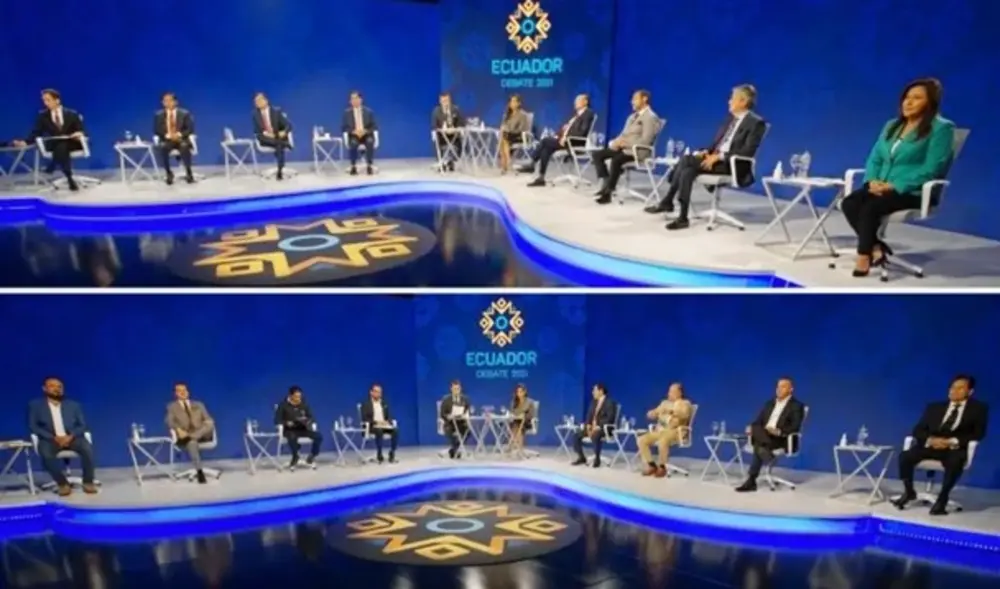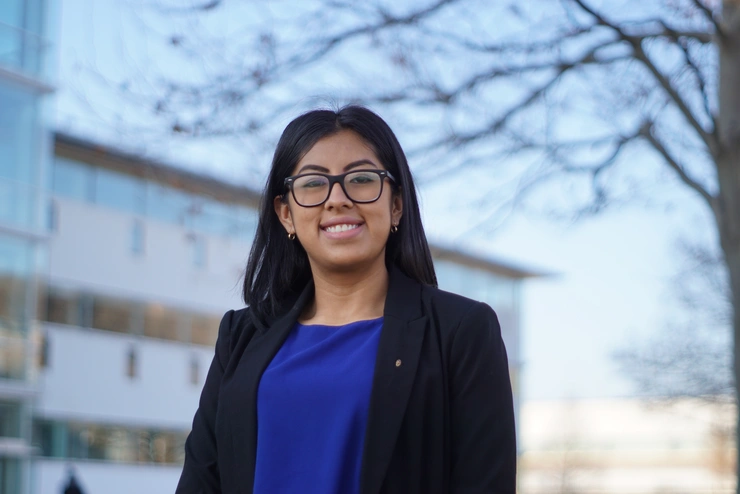Ecuadorian Elections 2021: 16 Candidates and an Uncertain Future

Ecuadorian Elections 2021: 16 Candidates and an Uncertain Future
On February 7, Ecuadorians will have a difficult decision to make as the country’s presidential and legislative elections will take place on the day. The current economic and health situation is hardly encouraging and poses an uncertain future for the country. According to World Bank figures, GDP in Ecuador decreased by 9.5% in 2020. Ecuador was ranked as the third most affected economy in Latin America by the pandemic[i]. Doubtlessly, overcoming the crisis would pose an enormous challenge for anyone who will become president. Despite having a total of 16 candidates running for office, which is a national record, the latest poll shows a worrisome reality for the future of the country as 44.07% of voters[ii] still have not selected a candidate and 66.40% of those[iii] are "little or not at all" interested in the upcoming elections. Indifference to politics could result in devastating consequences, deepening the crisis that the country is going through.
For many, these figures could be impressive. However, they are only a reflection of the reality in Ecuador, where the current president, Lenin Moreno, has the lowest rate of citizen approval compared to 13 countries in the region. Moreno, according to the ranking published by Fundación Directorio Legislativo, has just 11% of citizen approval rating[iv].
Based on the data collected by the Market pollster, only three of the 16 candidates have a chance of becoming president. At the first place is Andrés Arauz (Unión por la Esperanza) with 37.61% support. Arauz is endorsed by the former President, Rafael Correa, who was sentenced to eight years in prison for corruption. Guillermo Lasso (Alianza CREO and Partido Social Cristiano), a banker who presents his candidacy for the third time, follows with 30.88%. Finally, Yaku Pérez (Pachakutik), a representative of the indigenous movement, is at the third place with 13.82% voting intention[v].
Ecuador must reach minimum agreements in economic, health and education terms. However, this seems unlikely, as 283 political organizations have registered in the Consejo Nacional Electoral (CNE), the highest voting body in the country, for next elections and more than 2,000 candidates seek to occupy 137 seats in the National Assembly[vi]. Of these organizations, 19 have a candidate for the presidency and only three alliances were consolidated, which shows little or no predisposition to collaborate and presents an even more uncertain outlook for Ecuadorians.
The little interest shown by the public in the next elections is undoubtedly alarming at a time when one of the candidates has proposed the de-dollarization of the country. Ecuador officially adopted the dollar as its currency in 1999, after the country suffered a major economic and inflationary crisis in the late 1990s. Dollarization is not a perfect system, since it limits government's ability to influence local economy through monetary policies and it has resulted in a high cost of living for the population. However, in a country where the institutions are weak, there is no clear division of powers in practical terms and the external debt increases every year (8.5% from 2019 to 2020)[vii], adopting a local currency and giving the state the power to print money is an ill-advised decision under the current circumstances. Although Venezuela is an exceptional case, it shows the consequences of mishandling a national currency with an inflation rate of three digits.
Corruption has become a permanent characteristic in Ecuadorian politics and has sown a feeling of rejection towards politicians. In the midst of the health crisis, 196 suits were filed for bribery, illicit enrichment, influence peddling and embezzlement, in which a former minister, a former president, assembly members and other public officials were involved[viii]. This has caused most of the candidates to seek to move away from the image of the "current corrupt system" and present themselves as the option of change. However, this exercise becomes not much credible as among the candidates there are likes of former president Lucio Gutiérrez, who was overthrown in April 2005 by a popular movement. In addition, many of the speeches delivered by the candidates are based on a populist rhetoric that is not at all innovative in the region.
All three presidential debates (two organized by the private sector and one organized by the government), which were more expositions, were characterized by the lack of discussion. During the debates, purposes such as reducing taxes, vaccines against COVID-19 for the entire population in four months or a bonus of US $ 1,000 for one million families in the first week of mandate were mentioned. However, the question that was repeatedly left unanswered was how the candidates plan to execute these policies. This evidences the deficiencies in the personal capacities and in the government plans of several of the candidates, as well as the inability to handle public policy matters. A clear example was when Giovanny Andrade, who is running for office, was asked about what his public policy would be in terms of reproductive health and he replied “… we must see those children who have sexual relations so early”. It is absurd that people with such arguments intend to rule the country for the next four years.
Ecuadorians’ aversion towards politicians is understandable since the legislators have constantly proven themselves to be unworthy representatives of their citizens by extracting resources from the state and abusing power. Nevertheless, staying on the sidelines will not make the country recover; on the contrary, it will deepen its deficiencies. If a true and sustainable change is sought, it is necessary that citizens begin to get involved in politics, questioning their representatives, learning about the proposals that the candidates have and asserting their rights. Otherwise, a poorly trained person without the necessary knowledge and experience would become the next president of Ecuador.
[i] World Bank. (2021, January). Perspectivas económicas mundiales: América Latina y el Caribe [PDF]. pubdocs.worldbank.org/en/411411599838740469/Global-Economic-Prospects-January-2021-Regional-Overview-LAC-SP.pdf
[ii] Click Research. (2021, January). Click Report. Retrieved January 24, 2021, from www.clickresearch.ec/index.php/click-report.
[iii] CEDATOS. (2020, December 7). CEDATOS: PANORAMA POLÍTICO Y ELECTORAL. Retrieved January 24, 2021, from cedatos.com.ec/blog/2020/12/07/cedatos-panorama-politico-y-electoral/.
[iv] Fundación Directorio Legislativo. (2021, January 21). IMAGEN E INFLUENCIA PRESIDENCIAL EN AMÉRICA LATINA NOV – DIC 2020. Retrieved January 24, 2021, from directoriolegislativo.org/blog/2021/01/21/imagen-e-influencia-presidencial-en-america-latina-nov-dic-2020/.
[v] Burbano, M. (2021, January 15). Arauz, Lasso y Yaku encabezan las preferencias electorales según Market. Radio la Calle. Retrieved January 24, 2021, from radiolacalle.com/arauz-tiene-intencion-voto-37-61-segun-encuestadora/.
[vi] Consejo Nacional Electoral. (n.d.). Listado de Organizaciones Políticas aprobadas por el Pleno. Retrieved January 24, 2021, from http://cne.gob.ec/es/organizaciones-politicas/informacion/listado-de-organizaciones-politicas-aprobadas-por-el-pleno.
[vii] Primicias
[viii] El Comercio. (2020, December 10). Solo bienes de tres casos de corrupción en poder de Inmobiliar. Retrieved January 24, 2021, from www.elcomercio.com/actualidad/ecuador-corrupcion-inmobiliar-compras-pandemia.html.

About the author
Micaela Lincango is a First-Year Student at the Willy Brandt School of Public Policy. She comes from Ecuador and has a bachelor’s in International Relations with a minor in Political Science. She worked on an Inter-American Development Bank project, which was focused on digital transformation within development banks in Latin America. At the same time, she collaborated with a World Bank project about meso evaluations and country interventions. Her passion is social work and for that reason, she has been volunteer in different organizations, such as AIESEC and TECHO, for more than 4 years.
~ The views represented in this blog post do not necessarily represent those of the Brandt School. ~